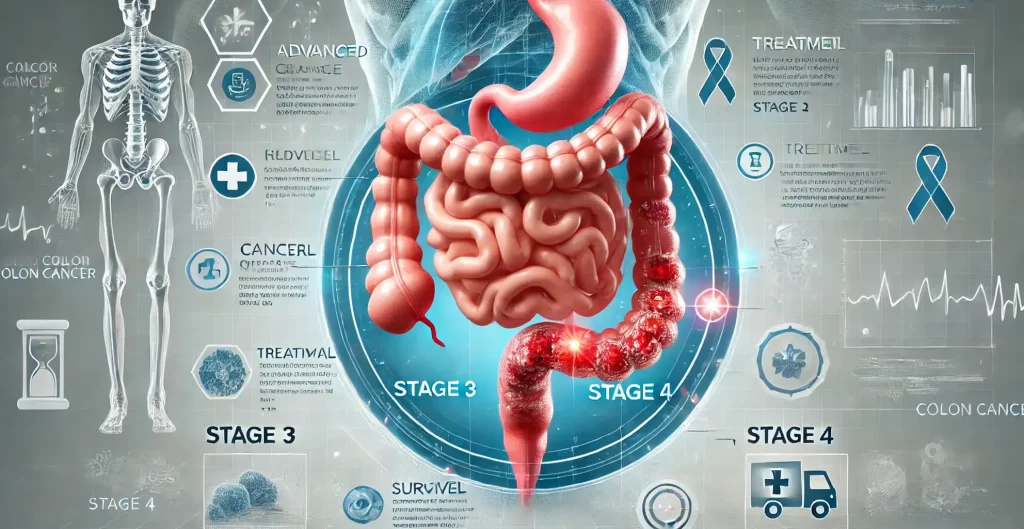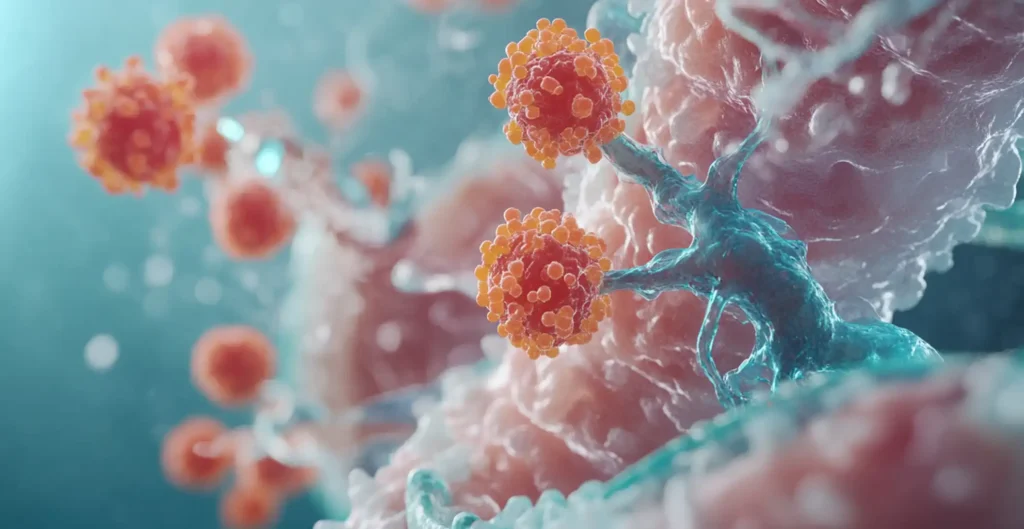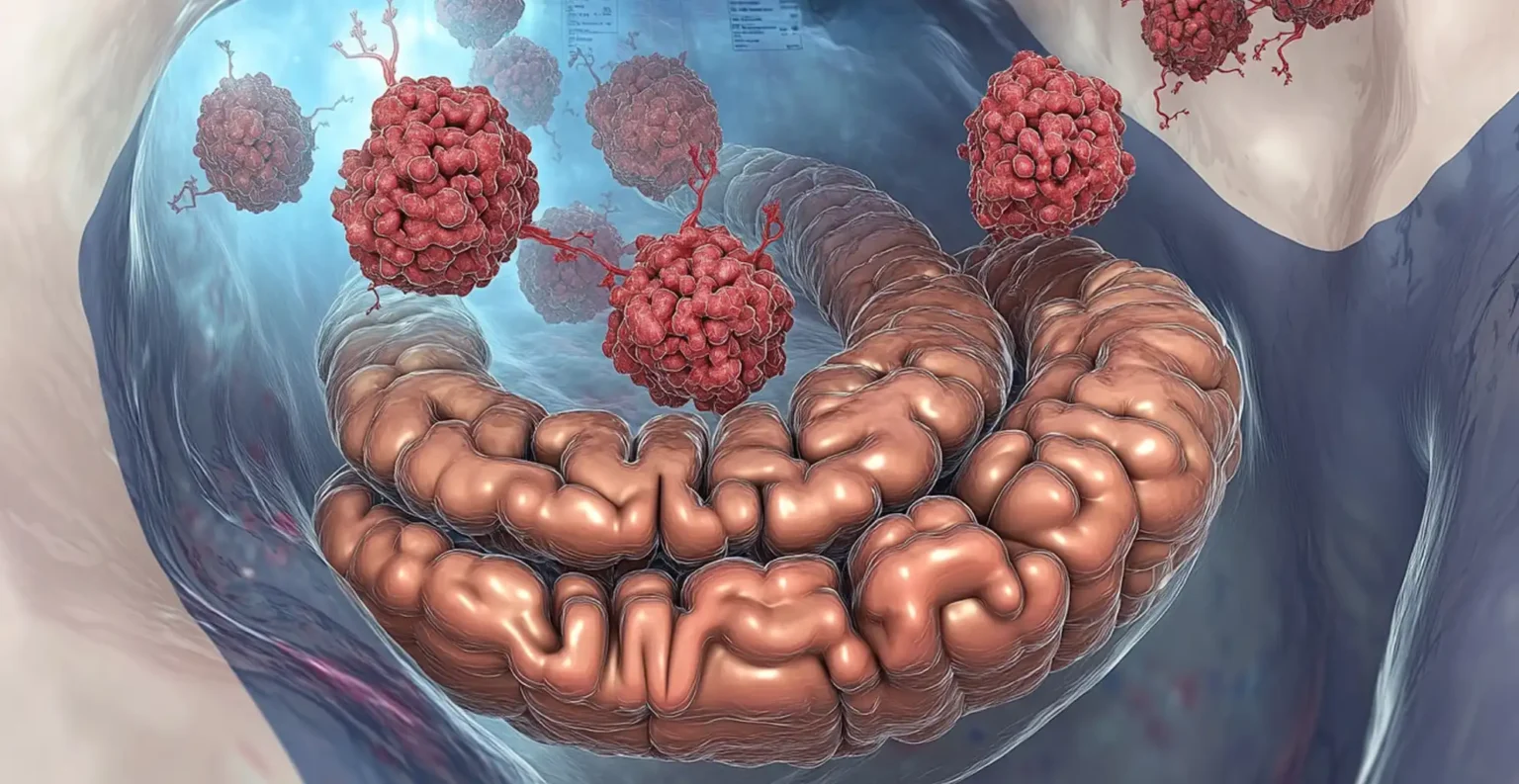When colon cancer progresses to its advanced stages, it becomes significantly more challenging to treat. Advanced colon cancer typically refers to Stage 3 or Stage 4 cancer, where the disease has spread beyond the colon to nearby lymph nodes or other organs, such as the liver or lungs. At these stages, survival rates are lower than for early-stage cancer, but thanks to modern medical advancements, patients now have more treatment options that can improve life expectancy and quality of life.
Understanding survival rates for advanced colon cancer is crucial for both patients and their families. These rates give a general idea of how long people with similar conditions might live after diagnosis. However, survival rates are influenced by many factors, such as the stage of cancer, the patient’s overall health, the specific treatments received, and even the genetic makeup of the tumor. It’s important to remember that survival statistics are averages and may not reflect an individual’s unique circumstances.
Survival rates vary significantly by stage:
- Stage 3 colon cancer typically has a better prognosis than Stage 4 because it is still confined to the lymph nodes, whereas Stage 4 cancer has spread to distant organs.
- Factors such as age, overall health, and response to treatments can impact life expectancy. Additionally, new therapies, including immunotherapy, targeted drugs, and clinical trials, are improving survival outcomes for some patients.
In this article, you will learn:
- Survival rates by stage (Stage 3 and Stage 4)
- Factors that impact survival rates
- Latest treatments improving life expectancy
Understanding the progression of colon cancer and the available treatments can empower patients to make informed decisions and explore all potential options for care. Let’s dive into the critical details that every patient and caregiver should know about survival rates for advanced colon cancer.

Understanding Advanced Colon Cancer
Advanced colon cancer refers to Stage 3 or Stage 4 colon cancer, where the disease has spread beyond its original site in the colon. These stages indicate more aggressive cancer progression, and the treatment approach focuses on controlling the disease, managing symptoms, and improving quality of life.
Defining Advanced Colon Cancer: Stage 3 and Stage 4
In Stage 3 colon cancer, the cancer has spread to nearby lymph nodes but hasn’t reached distant organs. Lymph nodes are part of the body’s immune system, and when cancer cells enter them, it means the disease is spreading beyond the colon. At this stage, surgery and chemotherapy are the primary treatment options, and there is still a significant chance of achieving remission with timely intervention.
In Stage 4 colon cancer, the disease has metastasized to distant organs, such as the liver, lungs, or peritoneum (the lining of the abdomen). This is the most advanced stage and requires more complex treatments, such as targeted therapies, immunotherapy, and palliative care to manage symptoms. Stage 4 survival rates are lower than earlier stages, but advancements in treatments are improving outcomes for some patients.
How Cancer Spreads to Other Parts of the Body (Metastasis)
When colon cancer progresses to advanced stages, it has the ability to spread to other parts of the body through the bloodstream or lymphatic system. This process is known as metastasis. Cancer cells break away from the original tumor in the colon and travel to distant organs, forming secondary tumors in areas like:
- The liver: The most common site of colon cancer metastasis.
- The lungs: Cancer can travel to the lungs through the blood.
- The peritoneum: The lining of the abdomen, often affected in advanced stages.
- The bones or brain: Less commonly affected but still possible.
Once cancer spreads to other organs, it becomes more challenging to treat because multiple areas of the body are affected. The focus of treatment shifts from curing the disease to controlling its spread, improving quality of life, and managing symptoms.
Symptoms and Diagnosis of Late-Stage Colon Cancer
In its early stages, colon cancer may cause few or no symptoms, which is why it often goes undiagnosed until it has reached an advanced stage. By the time it progresses to Stage 3 or Stage 4, the symptoms are more noticeable and may include:
- Chronic abdominal pain or discomfort
- Changes in bowel habits (constipation, diarrhea, or narrowing of stools)
- Blood in the stool or rectal bleeding
- Unexplained weight loss
- Fatigue and weakness
- Loss of appetite
- Nausea and vomiting
Advanced colon cancer can also cause symptoms related to metastasis, such as:
- Jaundice (yellowing of the skin and eyes) if it spreads to the liver.
- Shortness of breath if it spreads to the lungs.
- Abdominal swelling if it affects the peritoneum.
Diagnosis of Late-Stage Colon Cancer
Diagnosing advanced colon cancer typically involves a combination of:
- Colonoscopy: A procedure where a camera is used to examine the colon and take tissue samples.
- CT scans and MRIs: Imaging tests to detect cancer spread to other organs.
- Blood tests: To measure tumor markers like CEA (carcinoembryonic antigen), which is often elevated in advanced cancer.
- Biopsy: A sample of cancerous tissue taken for analysis to confirm the diagnosis.
Survival Rates for Advanced Colon Cancer by Stage
Survival rates for advanced colon cancer vary significantly depending on the stage of the disease, the treatments received, and individual patient factors such as age and overall health. While survival rates can provide a general idea of life expectancy, it’s important to understand that these numbers are averages based on large groups of patients. Every case is unique, and advancements in treatment are constantly improving outcomes for many patients.
Stage 3 Colon Cancer Survival Rates
In Stage 3 colon cancer, the cancer has spread to nearby lymph nodes but hasn’t reached distant organs. This stage is still considered treatable, especially with a combination of surgery and chemotherapy.

Survival Rate for Stage 3 Colon Cancer
According to recent statistics:
- The 5-year survival rate for Stage 3A colon cancer is around 88-90%, meaning about 88-90% of patients are still alive five years after diagnosis.
- The 5-year survival rate for Stage 3B is around 70-75%.
- The 5-year survival rate for Stage 3C is approximately 50-60%.
The survival rates tend to decrease as the cancer progresses from Stage 3A to 3C, depending on how many lymph nodes are affected and the size of the tumor.
How Surgery and Chemotherapy Improve Survival Rates
At Stage 3, the most effective treatment is surgical removal of the tumor, often combined with chemotherapy to kill any remaining cancer cells. Surgery aims to remove the tumor and affected lymph nodes, reducing the risk of recurrence. Chemotherapy is typically administered after surgery (called adjuvant chemotherapy) to target any microscopic cancer cells that may have spread beyond the colon.
Studies have shown that adjuvant chemotherapy can increase survival rates for Stage 3 colon cancer by 10-15%, particularly for patients with more advanced Stage 3B or 3C cancer. The use of newer chemotherapy regimens and targeted therapies has further improved outcomes.
Stage 4 Colon Cancer Survival Rates
Stage 4 colon cancer is the most advanced stage of the disease. At this stage, the cancer has spread (metastasized) to distant organs, most commonly the liver, lungs, or peritoneum. While a cure is unlikely at this stage, treatment can help prolong life and improve quality of life.
Survival Rate for Stage 4 Colon Cancer
- The 5-year survival rate for Stage 4 colon cancer is approximately 14-20%.
- However, this varies widely depending on the extent of metastasis and the effectiveness of treatment.
For patients whose cancer has spread only to the liver or lungs, survival rates may be higher, especially if surgery can be performed to remove the metastatic tumors. Patients with multiple metastases in different organs generally have a lower life expectancy.
Factors That Affect Stage 4 Colon Cancer Life Expectancy
Several factors influence life expectancy at Stage 4, including:
1. Location of Metastasis
The liver is the most common site for colon cancer metastasis. If the cancer is confined to the liver, surgical removal of the liver tumors (hepatectomy) can significantly improve survival rates. Patients who undergo surgery for liver metastases have a 5-year survival rate of 40-50%, which is much higher than the general survival rate for Stage 4 cancer.
Other common metastasis sites include:
- Lungs: Treatment for lung metastases may involve surgery or radiation.
- Peritoneum (abdomen lining): More difficult to treat but can be managed with chemotherapy.
2. Treatment Options
Advances in targeted therapies and immunotherapy have improved survival outcomes for some patients with Stage 4 colon cancer.
- Targeted therapies like bevacizumab (Avastin) or cetuximab (Erbitux) work by blocking specific pathways that cancer cells use to grow and spread.
- Immunotherapy is effective for a subset of patients with specific genetic mutations, such as microsatellite instability-high (MSI-H) tumors.
3. Patient’s Overall Health and Age
Younger, healthier patients tend to have better survival rates because they can tolerate aggressive treatments more effectively. Additionally, patients who maintain a healthy lifestyle and manage other medical conditions are likely to live longer.
Summary of Survival Rates by Stage
| Stage | 5-Year Survival Rate | Key Factors |
|---|---|---|
| Stage 3A | 88-90% | Surgery and chemotherapy |
| Stage 3B | 70-75% | Number of lymph nodes affected |
| Stage 3C | 50-60% | Extent of tumor spread |
| Stage 4 | 14-20% | Metastasis location and treatment options |
Factors That Impact Survival Rates
Survival rates for advanced colon cancer are influenced by several key factors, ranging from a patient’s age and overall health to genetic mutations and how well they respond to treatment. These factors help doctors determine the best course of action and predict outcomes more accurately.
1. Age and Overall Health
Younger patients tend to have better survival rates for advanced colon cancer. This is because younger individuals are often healthier overall and can better tolerate aggressive treatments such as chemotherapy or surgery. Additionally, younger patients are less likely to have other chronic conditions, such as diabetes or heart disease, which can complicate cancer treatment.
However, older patients should not lose hope. With personalized care and less aggressive treatment approaches, many older patients can still improve their quality of life and survival rates.
2. Genetic Factors
Certain genetic mutations can impact the prognosis of advanced colon cancer. For example, tumors with microsatellite instability-high (MSI-H) or deficient mismatch repair (dMMR) respond well to immunotherapy, improving survival rates for these patients.
On the other hand, some mutations, such as KRAS, NRAS, and BRAF, may indicate more aggressive cancer and a poorer prognosis. Genetic testing of tumors helps doctors identify the most effective treatments and predict likely outcomes.
3. Treatment Type
The type of treatment a patient receives has a significant impact on survival rates. Traditional treatments like surgery and chemotherapy remain the standard for advanced colon cancer, but newer therapies such as immunotherapy and targeted therapies are helping improve outcomes for some patients.
- Immunotherapy is especially effective for patients with MSI-H or dMMR tumors.
- Targeted therapies can block cancer’s growth pathways and work for patients with specific genetic mutations.
4. Response to Treatment
How well a patient responds to treatment also plays a major role in determining survival rates. Patients who respond well to chemotherapy, surgery, or newer treatments tend to live longer and have a better quality of life.
In some cases, the cancer may become resistant to treatment, leading to a more challenging prognosis. Regular monitoring and adjustments to treatment plans are essential to improving outcomes.
Latest Treatments for Advanced Colon Cancer
Medical advancements are improving the outlook for patients with advanced colon cancer. While traditional treatments like surgery and chemotherapy remain essential, newer approaches such as immunotherapy and targeted therapies are offering hope to patients who previously had limited options.
1. Surgery
In Stage 3 colon cancer, surgery is often the first step in treatment. Surgeons remove the primary tumor and affected lymph nodes, reducing the risk of recurrence.
In Stage 4 colon cancer, surgery may still be an option if the cancer has spread to the liver or lungs. Metastasis removal surgery can improve survival rates for some patients. However, if the cancer has spread too extensively, surgery may be used for palliative purposes — to relieve symptoms and improve quality of life.
2. Chemotherapy
Chemotherapy remains a cornerstone treatment for advanced colon cancer. It works by targeting rapidly dividing cancer cells throughout the body.
Chemotherapy is typically given after surgery (adjuvant therapy) to kill remaining cancer cells, or as the primary treatment for Stage 4 cancer. New chemotherapy regimens are improving survival rates, especially when combined with other therapies like targeted treatments.
3. Immunotherapy
Immunotherapy is one of the most exciting advancements in treating advanced colon cancer. It works by activating the patient’s immune system to recognize and attack cancer cells.
This approach is particularly effective for patients with MSI-H or dMMR tumors, which have genetic characteristics that make them more susceptible to immune system attacks. Checkpoint inhibitors such as pembrolizumab (Keytruda) have shown promising results in extending life expectancy for some patients.
4. Targeted Therapies
Targeted therapies work by blocking specific pathways that cancer cells use to grow and spread. Unlike traditional chemotherapy, which affects both cancerous and healthy cells, targeted therapies focus only on cancer cells, reducing side effects.
Examples of targeted therapies for colon cancer include:
- Bevacizumab (Avastin): Blocks blood vessel growth in tumors.
- Cetuximab (Erbitux): Targets the EGFR protein on cancer cells.
5. Palliative Care
For patients with late-stage colon cancer, palliative care is essential to manage symptoms, improve comfort, and maintain quality of life. Palliative care focuses on relieving pain, managing side effects, and addressing emotional needs.
How to Improve Survival Rates
Although survival rates for advanced colon cancer can be daunting, patients can take steps to improve their outcomes. These actions focus on healthy lifestyle choices, adherence to treatment plans, and participating in clinical trials to access new therapies.
1. Healthy Lifestyle Choices
Patients can improve their overall health and immune function by adopting a heart-healthy diet, exercising regularly, and quitting smoking.
Dietary recommendations for colon cancer patients include:
- High-fiber foods like fruits, vegetables, and whole grains.
- Lean proteins such as fish and poultry.
- Limiting processed foods, red meat, and sugar.
2. Following Treatment Plans
Adherence to treatment plans is critical for improving survival rates. Patients who follow their doctor’s recommendations for surgery, chemotherapy, or other therapies tend to have better outcomes.
Missing appointments, delaying treatments, or not completing prescribed therapies can reduce the effectiveness of cancer care.
3. Regular Follow-Ups
Regular follow-up appointments help detect cancer recurrence early. Early detection of recurrence allows doctors to intervene quickly, improving survival chances.
4. Clinical Trials
Participating in clinical trials can give patients access to new treatments that are not yet widely available. Clinical trials are especially important for patients who have exhausted standard treatment options.
Emotional and Practical Support for Patients and Families
Facing advanced colon cancer is emotionally challenging for both patients and their families. Emotional and practical support can make a significant difference in coping with the disease.
1. The Importance of Emotional Support
Emotional support helps patients manage the stress and anxiety that come with a cancer diagnosis. Support can come from family, friends, counselors, or support groups.
Many patients benefit from joining cancer support groups where they can share experiences and learn coping strategies.
2. Resources for Caregivers and Families
Caregivers play a crucial role in supporting patients through treatment. However, caregiving can be exhausting, both physically and emotionally. Providing resources and respite care options for caregivers is essential to prevent burnout.
3. Palliative Care Options
Palliative care isn’t just for end-of-life care. It can be provided at any stage of advanced cancer to help patients manage pain, fatigue, nausea, and other symptoms.
Palliative care teams work with patients and families to ensure that treatment aligns with their goals and values, improving both comfort and quality of life.

Conclusion:
Understanding survival rates for advanced colon cancer is crucial for patients and their families to navigate this challenging diagnosis. While Stage 3 colon cancer offers a better prognosis with appropriate treatments like surgery and chemotherapy, Stage 4 colon cancer presents more complex challenges as it often involves metastasis to distant organs. However, new treatments such as immunotherapy and targeted therapies are helping improve outcomes and provide hope for patients at all stages.
Several factors impact survival rates, including age, overall health, genetic mutations, and response to treatment. While survival statistics provide a general guide, each patient’s journey is unique, and advancements in medical care continue to improve life expectancy and quality of life for many individuals with advanced colon cancer.
By focusing on healthy lifestyle choices, adhering to treatment plans, and exploring clinical trials, patients can take proactive steps to improve their chances of survival. Additionally, emotional and practical support for both patients and caregivers is essential to navigate the challenges of advanced colon cancer.
As a next step, consider exploring new research on colon cancer treatments and clinical trials that may offer access to cutting-edge therapies and improve long-term outcomes.


1 thought on “Survival Rates for Advanced Colon Cancer: What You Need to Know”